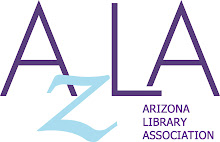The Arizona legislature is trying to remove local flexibility of library districts in rural Arizona.
Currently, library districts work with regional libraries to determine what resources are needed, then levies a property tax in order to meet those needs.
House Bill 2586 and Senate Bill 1256 would remove that process and force rural Arizona to conform to the limited funding method adopted by the Maricopa County library district, who has significantly more resources than rural area libraries.
Please contact your legislators now to communicate the importance of a library district in your region, and ask them to vote NO on HB 2586 and SB 1256.
Visit www.votesmart.org to find contact information for your legislators.
Many rural libraries would be impacted by HB 2586 and SB 1256.
HB 2586 and SB 1256 treat libraries in rural areas as if they have the same resources of libraries in Maricopa County. Because of its highly-developed library infrastructure, Maricopa County Library District has already limited its growth; these proposals would force the following rural library districts to do the same:
Apache County Cochise County Coconino County
Gila County Mohave County Navajo County
Pima County Pinal County Yavapai County
Yuma County
This would significantly limit library resources across the state.
HB 1256 and SB 1256 would limit library district property taxes to an annual increase of 2% plus taxes on new construction in the district. If this limitation had been in place last year, library district revenues would have been cut by anywhere between 6% and 41%.
Libraries should not be arbitrarily limited by the state; resource levels should be locally-determined.
Libraries serve local needs, and should be controlled at the local level. They provide vital services to the citizens of rural areas, where growing populations create the need for additional library resources.
These proposals would dramatically increase pressure on Friends of the Library and other fund-raising groups.
If library district resources are cut, either the funding must be subsidized by other sources or services must be cut. Currently, library districts provide the following resources to help regional libraries:
Augment library materials budgets, allowing rural libraries to purchase books, newspapers and database resources.
Provide technical expertise, such as highly-educated librarians and library knowledge, to rural libraries.
Provide circulation and catalog systems to rural libraries, which allows libraries to organize their resources and share the resources of other libraries.
Every citizen of Arizona benefits from the services offered by libraries.
Libraries provide services that are valuable to every group and individual of rural Arizona, including:
Research: The research tools offered by libraries provide resources to teachers, students of every age, scholars, and anyone wanting to learn new skills, job training or information.
News and Information: Libraries subscribe to worldwide newspapers and periodicals that provide extensive knowledge which would otherwise not be available to Arizona’s residents.
Genealogy: While many online genealogy tools are far too costly for individuals to access on their own, libraries are able to provide the unique resource to the public.
Technology: Much of rural Arizona still has limited Internet and telecommunications resources. Libraries provide Internet access, fax machines and other valuable tools to residents.
Meeting Space: Libraries provide room for meetings and gatherings, which is a valuable resource particularly in rural Arizona. Girl and Boy Scout troops, 4-H groups, and senior citizen programs regularly take advantage of this public service.
Subscribe to:
Post Comments (Atom)

No comments:
Post a Comment